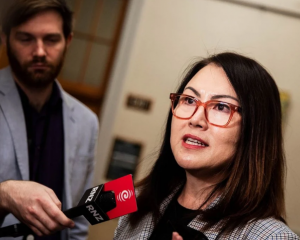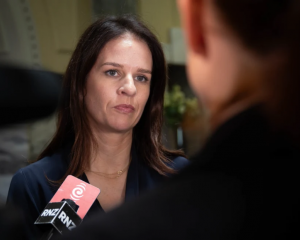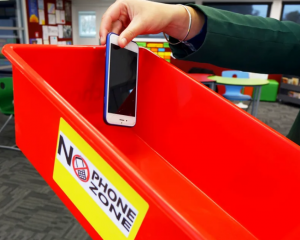
The findings of a high-level inquiry headed by retired High Court judge Dr John Priestley QC and Simon Murdoch have been released this afternoon.
Stricter monitoring of prisoners who are temporarily released "outside the wire" and into the community is one of a number of recommendations the Government has promised to act on.
Some of the findings of the report, for which 116 people were interviewed, will make for embarrassing reading for authorities.
The escape could have been thwarted before it even began if Corrections had simply checked with Smith's nominated sponsor that the prisoner was expected to stay with him overnight.
"The sponsor in fact knew nothing of the release, and would certainly have said so if asked," the report concludes.
There were shortcomings in various agencies systems and processes as well as simple failings that acted as "links in a chain" in their failure to prevent Smith's escape, the report states.
"Had one been absent, then the escape almost certainly would not have occurred."
Smith, a murderer and child sex offender, fled New Zealand in November while on temporary release from Spring Hill Prison, but was caught in Rio de Janeiro after being recognised by a fellow backpacker in a hostel.
He had obtained a passport issued in his birth name Phillip John Traynor, some 16 months before he left New Zealand on November 6.
About eight hours before he boarded the flight he had been released from Spring Hill prison on a temporary release of 74 hours, and he was meant to stay with designated sponsors.
Smith did not return to Spring Hill on November 9, and it was only on the following day that it was confirmed he had left New Zealand.
Failings identified by the inquiry include:
- Corrections staff failed to adequately assess the extra risk Smith posed on temporary release, and there was no contact made with one of his sponsors. For example, if Smith's nominated sponsor was contacted before the day of his release, they would have confirmed they had no knowledge of his stay, and the escape would have been thwarted.
- When it was confirmed that Smith was not with his sponsors, Spring Hill staff were much too slow to inform police that a prisoner had escaped. A manager called police on the night of November 8 to give them a "heads up", but there was no insistence on any immediate action and the situation was not outlined as an escape.
"Remarkably, however, it does not appear that any of the three most senior managers at Spring Hill (all home but roughly 80km apart) appreciated that Mr Smith had escaped. Actions which should follow an escape were not triggered," the report states.
It was not until the next day that Corrections told police Smith had escaped - four days after his release.
- When police were notified that Smith was at large, the crime squad should have been engaged earlier, and an urgent request to Interpol made. Victims were not contacted as early as they should have been, potentially creating a risk for them. Police protective support for the victims was slower than desirable.
- Internal Affairs was unaware Smith's passport application was from a prisoner, meaning it did not matter if it was in the name Traynor or Smith. Customs' border alerts system was not triggered when Smith departed as at that time people in his category were not routinely loaded into the system.
The inquiry said there needed to be better cooperation between police and Corrections in the management of temporary releases, which it noted were a valuable part of prisoner rehabilitation and very rarely breached. Police and Corrections had not specifically agreed how to coordinate the monitoring of temporary releases.
A "step change" was desirable in how information is shared between government agencies - for example, providing Customs with better information on who should not be able to leave the country. Once those systems are in place, police could develop an official identity for everyone charged with an offence.
Smith's escape was not a sign that systems and practices of agencies were broken in a fundamental way, the report states, and "we acknowledge the difficulties these agencies face in allocating resources and balancing priorities".
Responding to the report, Justice Minister Amy Adams and Corrections Minister Peseta Sam Lotu-Iiga said the Government accepted or accepted in principle 34 of the 39 recommendations.
The remaining five recommendations "raise wider issues which the Government will consider as part of this work".
Those recommendations include serious offenders not being able to hold a passport without permission from authorities, Corrections compiling information on all serious offenders who have passports, and giving the Minister of Internal Affairs the discretion to cancel passports for certain people.
"The report highlighted vulnerabilities that need to be addressed including the way we deal with identity and information sharing across the justice sector, and other related agencies such as Customs and Internal Affairs," Ms Adams said.
"A number of refinements across agencies have already been made which will significantly reduce the likelihood of a similar occurrence happening again."
State Services Minister Paula Bennett said she was confident the review, and work programme to be headed by Ms Adams, would see flagged vulnerabilities addressed.
Last month the New Zealand Herald revealed that corruption charges were laid against the prison guard who Smith claimed help him escape to Brazil.
His younger sister has been charged with helping him escape, which she denies, while a fellow inmate, Christopher Ryan Clifton, admitted making a false statement to help Smith get a passport.
On his return to New Zealand, Smith released a handwritten statement that claimed a Corrections officer helped him to obtain a passport and gave him a smartphone and movies. Smith further alleged he received "numerous benefits" from the time of their first meeting to some time between October and November 2012.
- Nicholas Jones politics of the New Zealand Herald










